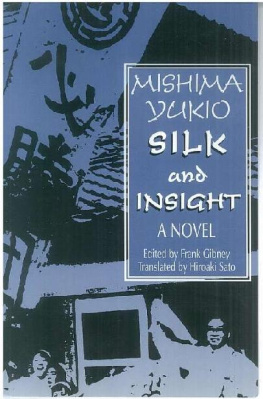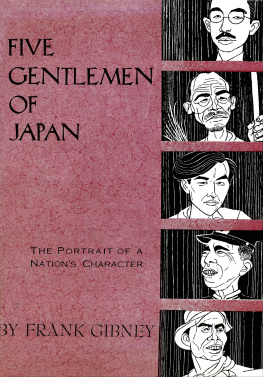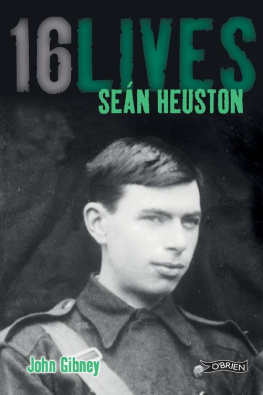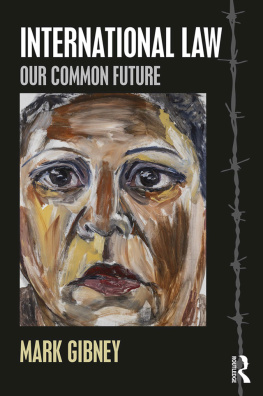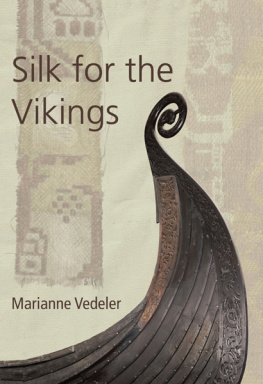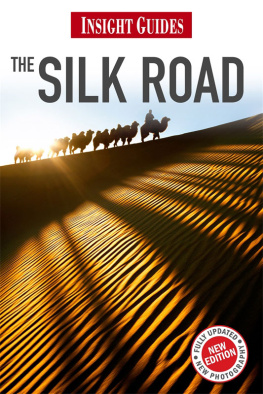Frank Gibney - Silk and Insight (Kinu to Meisatsu): A Novel
Here you can read online Frank Gibney - Silk and Insight (Kinu to Meisatsu): A Novel full text of the book (entire story) in english for free. Download pdf and epub, get meaning, cover and reviews about this ebook. year: 1998, publisher: M.E. Sharpe, genre: Detective and thriller. Description of the work, (preface) as well as reviews are available. Best literature library LitArk.com created for fans of good reading and offers a wide selection of genres:
Romance novel
Science fiction
Adventure
Detective
Science
History
Home and family
Prose
Art
Politics
Computer
Non-fiction
Religion
Business
Children
Humor
Choose a favorite category and find really read worthwhile books. Enjoy immersion in the world of imagination, feel the emotions of the characters or learn something new for yourself, make an fascinating discovery.
- Book:Silk and Insight (Kinu to Meisatsu): A Novel
- Author:
- Publisher:M.E. Sharpe
- Genre:
- Year:1998
- Rating:3 / 5
- Favourites:Add to favourites
- Your mark:
- 60
- 1
- 2
- 3
- 4
- 5
Silk and Insight (Kinu to Meisatsu): A Novel: summary, description and annotation
We offer to read an annotation, description, summary or preface (depends on what the author of the book "Silk and Insight (Kinu to Meisatsu): A Novel" wrote himself). If you haven't found the necessary information about the book — write in the comments, we will try to find it.
Silk and Insight (Kinu to Meisatsu): A Novel — read online for free the complete book (whole text) full work
Below is the text of the book, divided by pages. System saving the place of the last page read, allows you to conveniently read the book "Silk and Insight (Kinu to Meisatsu): A Novel" online for free, without having to search again every time where you left off. Put a bookmark, and you can go to the page where you finished reading at any time.
Font size:
Interval:
Bookmark:
A Pacific Basin Institute Book
Silk
and
Insight
Mishima Yukio
Silk
and
Insight
A NOVEL
Edited by Frank Gibney
Translated by Hiroaki Sato

AN EAST GATE BOOK
M.E. Sharpe
Armonk, New York
London, England

An East Gate Book
Copyright 1998 by The Pacific Basin Institute
All rights reserved. No part of this book may be reproduced in any form
without written permission from the publisher, M. E. Sharpe, Inc.,
80 Business Park Drive, Armonk, New York 10504.
Library of Congress Cataloging-in-Publication Data
Mishima, Yukio, 19251970.
[Kinu to meisatsu. English]
Silk and insight: a novel / by Yukio Mishima ; translated by
Hiroaki Sato.
p. cm.
An East Gate book.
ISBN 0-7656-0299-7 (cloth: alk. paper)
ISBN 0-7656-0300-4 (pbk: alk. paper)
I. Sato, Hiroaki, 1942. II. Title.
PL833.I7K55213 1998
895.635dc21 98-11263
CIP
Printed in the United States of America
The paper used in this publication meets the minimum requirements of
American National Standard for Information Sciences
Permanence of Paper for Printed Library Materials,
ANSI Z 39.48-1984.

BM (c) 10 9 8 7 6 5 4 3 2
BM (p) 10 9 8 7 6 5 4 3
I thank, first and foremost, Professor J. Thomas Rimer, of the University of Pittsburgh, for recommending me for this translation work and Mr. Frank Gibney, president of the Pacific Basin Institute, for giving me a grant. I also thank the film critic Takagaki Chihiro and Professor Nakamura Masanori, of Hitotsubashi University, for helping acquire background information on the strike at the textile manufacturer Omi Kenshi, on which Kinu to Meisatsu (Silk and Insight) is based, and Professor Dick Prust, of St. Andrews Presbyterian College, and the translator Connie Prener for reading paragraphs describing Heidegger.
My wife Nancy Rossiter read the translation at the draft stage and made a number of corrections.
Finally, I thank Hilary Handlesman for her meticulous editing, which has greatly improved the manuscript. Whatever infelicities that remain, as well as interpretive errors, are mine.
Paragraphs from Capital, Vol. 1, tr. Ben Fowkes, are quoted with permission of New Left Review and lines from Friedrich Hlderlin: Fragments & Poems with permission of Cambridge University Press.
H.S.
I first met Mishima Yukio at a dinner at Crescent, Tokyos old-fashioned Western-style restaurant, one wintry evening in 1963. Our host was the late Harold Strauss, the publisher who did so much to bring out translations of good Japanese fiction in the post-World War II years; also present was John Nathan, a brilliant young American scholar who went on to render memorable translations of Mishima and the later Nobel Prize winner e Kenzaburo. Mishima was the first Japanese writer of stature whom I talked to. He was far different from the accepted bunkajin stereotype. A small, tidy, well-proportioned but visibly tense man, notably well-dressed, he spoke English rapidly but not without wit. He made good conversation. Like most writers, he was greatly interested in people and their foibles. He spoke of a wide variety of interests with the vigor of a perennial enthusiast. Outgoing and likable, I thought.
Over the next seven years I came to know him reasonably well. He visited me in New York, and when I later brought my family to Tokyo to live, Uncle Yukio, as my boys called him, was good enough to take us on a lightning tour of Tokyo. For a while I became a part-time regular at Sushi Ch, his favorite Roppongi stopping-place. (Like Mishimas prose, the food and drink mere were rich and expensive.) I half-comprehendingly sat through early performances of his newly written N plays and, from time to time, joined the throng at the rather ceremonial parties he hosted at his large, garishly architectured foreign-style (fifties Miami) house in Tokyo. Some were designated foreigners nights, as it seemed, with only English spoken. Others were mostly gatherings of Japanese literati, where I became the occasional fly on the wall.
While living in Tokyo I read some of Mishimas books with interestThe Temple of the Golden Pavilion in particularalthough in English. His Japanese was generally too hard for me. The moodiness and bizarre eroticism of his themes left me uncomfortable. But he was a good friend, who could always be counted on for interesting talk and provocative, predictably extreme points of view. When we began work on the Japanese-language version of the Encyclopaedia Britannica, he was helpful with sound advice about scholars and editorial treatment. In the fall of 1970 I wrote to him, asking that he write a short article for our encyclopaedia on the Meiji era author Izumi Kyoka, celebrated for his storiesrooted in old folkloreof the grotesque and supernatural. Although Kyka was one of Mishimas favorite authors, he declined the assignmentfor the moment, it would seem.
I am tightly occupied by my own writing of the novel Hj no Umi (The Sea of Fertility), which I expect to finish within a couple of months, he wrote. I could give you a clear answer if you could kindly wait until Ill [sic] finish my present work. His letter was dated November 2, 1970. Three weeks after I received this letter, Mishima Yukio was dead. He killed himself on November 25 that year by committing seppuku, the ritual disembowelment of the classic samurai, in the course of an unsuccessful attempt to incite a traditional all-for-the-emperor uprising at the headquarters of Japans Self-Defense Forces. (The thoroughly modern soldiers he addressed had laughed at him.) For Japanese as much as foreigners, the fact of his suicide remained as much a mystery as its manner.
Unquestionably he had been disturbed by the money-obsessed materialism of his countrymen. Indeed, much that he said and wrote on this subject thirty years ago rings all too true in the era of the Burst Bubble economy. A proudly militant rightist at a time when most of Japans intelligentsia practiced a ritual leftismI suspected that in a predominantly rightist atmosphere Mishima would have turned far lefthe went to the length of equipping a private militia of about a hundred handsome young men called the Shield Society (Tate no Kai) who staged periodic drills on the roof of Tokyos Nissei Theater in their bright designer-made uniforms. Mishima brought the group along when he was allowed to join one of the Land Self-Defense Forces training exercises; and some accompanied him on his final mission to the Force headquarters in Tokyo.
He had spoken with apparent seriousness of reviving military fealty to the emperor in a way that recalled the young officer rebels of the militarist thirties. Indeed, the short film Ykoku (Patriotism), which he made in the mid-sixties, adopted from an earlier short story, was set in 1936, after the collapse of the notorious February 26 Incident. At that time some fourteen hundred troops of the Armys First Division were led out of their barracks by firebrand young officers in an attempted coup detat. They managed to assassinate several Cabinet officers, including Finance Minister Takahashi Korekiyo, before surrendering to loyal Army and Navy units three days later at the orders of an indignant Emperor Hirohito. Nineteen of the coup leaders were executed, and scores of others received jail sentences.
Font size:
Interval:
Bookmark:
Similar books «Silk and Insight (Kinu to Meisatsu): A Novel»
Look at similar books to Silk and Insight (Kinu to Meisatsu): A Novel. We have selected literature similar in name and meaning in the hope of providing readers with more options to find new, interesting, not yet read works.
Discussion, reviews of the book Silk and Insight (Kinu to Meisatsu): A Novel and just readers' own opinions. Leave your comments, write what you think about the work, its meaning or the main characters. Specify what exactly you liked and what you didn't like, and why you think so.

